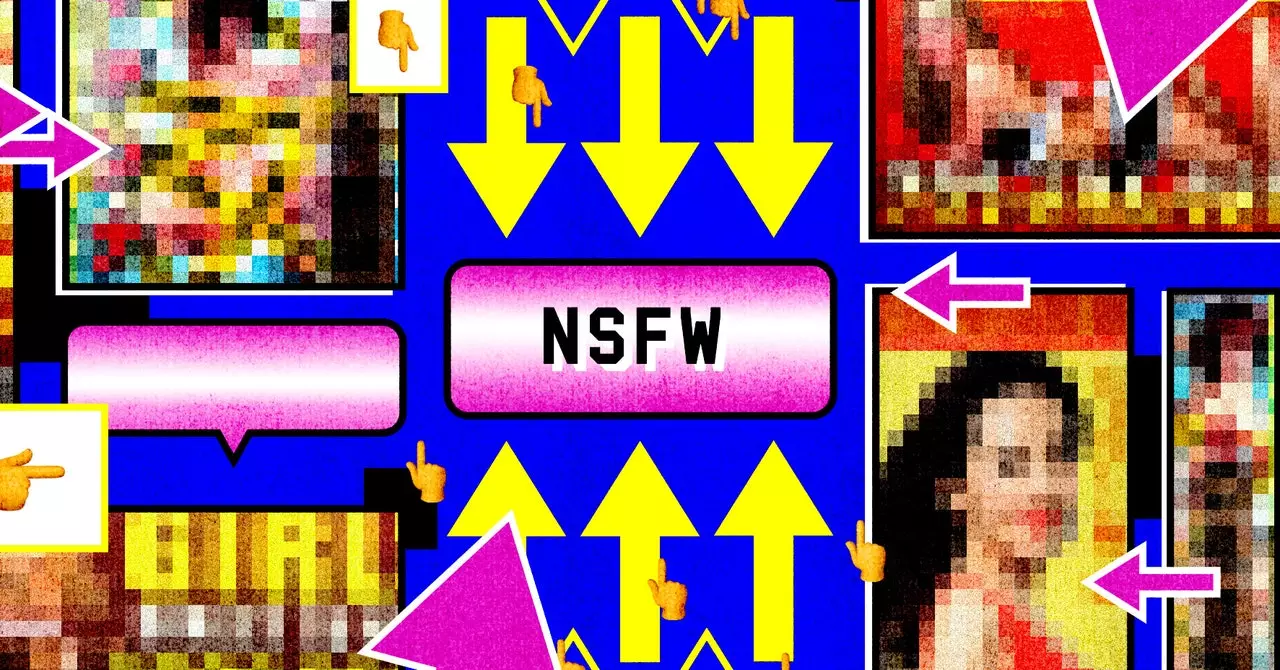In a disturbing trend that is sweeping across social media platforms, there has been a significant rise in the number of ads promoting “AI girlfriends” that offer explicit content. According to Meta’s ad library, there were over 3,000 ads for “AI girlfriends” and 1,100 ads containing “NSFW” that were live on April 23. These ads promise everything from explicit chats to secret photos from a variety of lifelike female characters, anime women, and even cartoon animals. The targeting of these ads, aimed at men aged 18 to 65, raises serious concerns about the exploitation and objectification of women in the digital sphere.
Misleading Content
One particular AI girlfriend app, Hush, has published over 1,700 ads across Meta platforms, many of which contain explicit content and questionable imagery. Some ads feature AI women in compromising positions, with messages like “Help me, I will do anything for you” plastered across them. In addition, there are ads promising “NSFW” content and personalized AI companionship with young-looking AI-generated women, using tags like “#barelylegal” and “#teens.” This type of misleading and potentially harmful content is not only irresponsible but also potentially dangerous, especially for vulnerable individuals.
Several other apps for AI “girlfriends” have also been promoting similar services through Meta ads, including features that allow users to “undress” their AI girlfriends and download explicit images. These features, known as “nudifying” apps, have raised red flags and have already led to some ads being removed for violating Meta’s advertising standards. The normalization of such controversial features and the exploitation of AI technology for sexual gratification is deeply concerning and highlights the need for stricter regulation and oversight in the tech industry.
The use of AI technology to create virtual companions raises important ethical questions about the intersection of technology and human intimacy. While some users of AI companions claim that they can help combat loneliness and provide emotional support, the objectification of women and the promotion of explicit content in these apps cannot be overlooked. The comparison between AI girlfriends and human sex workers, as pointed out by Carolina Are, highlights the disparity in how these two forms of companionship are perceived and regulated. The commodification of women’s bodies and the lack of accountability in the tech industry are issues that need to be addressed urgently.
One of the concerning aspects of these AI girlfriend apps is the lack of transparency regarding how they are built and the algorithms used to generate content. Limited information is available about the underlying technology behind these apps, raising questions about data privacy and security. The use of names like “Sora” to hint at connections with established AI technology adds to the confusion and opacity surrounding these apps. Without clear guidelines and regulations in place, users are left vulnerable to potential exploitation and manipulation by these apps.
Overall, the rise of AI girlfriends and the promotion of explicit content through social media ads paint a troubling picture of the ways in which technology can be weaponized for harmful purposes. It is crucial for tech companies and regulators to take decisive action to address these issues and prevent further harm to vulnerable individuals. The exploitation of women and the normalization of explicit content in AI technology demand a collective response from society to ensure that ethical standards and human dignity are upheld in the digital age.


Leave a Reply